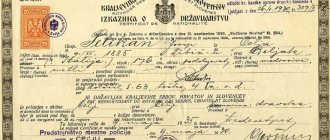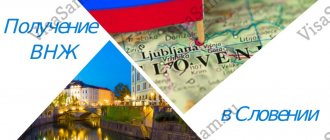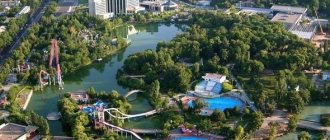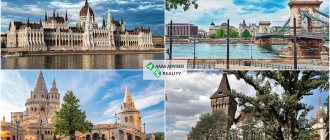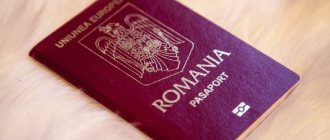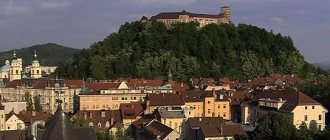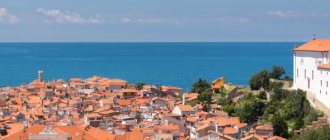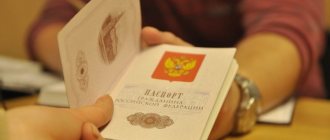Moving to Europe worries many Russian families, tired of the poor environment, unstable political and economic situation and imperfect government structures. Immigration to Slovenia is one of the ways to realize your plans if you need an optimal compromise between the quality of the result and the costs. By becoming the owner of a Slovenian passport, you can visit all Schengen countries without a visa, as well as another 130 states with which Slovenia has signed relevant agreements.
The country has an advantageous geographical position - the Alps with ski resorts are located in most of them, and the Adriatic coast is in the southwestern part. Slovenia is a member of the EU and Schengen. The mentality of the local residents is European - they are quite cultured, economical and hardworking. Residents of the country enjoy free healthcare and education.
The country attracts immigrants from Russia and Ukraine due to the closeness of customs and culture, the comparative ease of learning the Slovenian language due to belonging to the Slavic group. Slovenia will appeal to those who love comfort, peace and quiet. Those interested in business immigration to Slovenia will find many interesting areas for investment.
In 2015, the migration legislation of Slovenia was supplemented with new rules, so before moving you should clarify in detail the conditions, requirements and other nuances of emigration.
Pros and cons of living in Slovenia
The beauty of nature is a wonderful reason to relax in Slovenia, but moving for permanent residence requires more compelling reasons. In order not to be disappointed in a fateful decision, you need to find out more information about the country from feature articles, on forums, from comments and reviews of those who have already moved and experienced the advantages and disadvantages.
Pros:
- nature is carefully protected, so there are many clean parks and places for recreation;
- stable political environment;
- visa-free travel to Schengen countries;
- excellent medicine;
- free schools;
- loyal tax policy towards business;
- comfortable climate, accessible beaches and mountains;
- developed road infrastructure;
- safety;
- friendliness towards migrants;
- low flow of visitors from Arab states;
- ease of adaptation for Russians and Ukrainians.
Main disadvantages:
- wages are below the European average;
- rental housing is expensive;
- impossibility for a foreigner to purchase private real estate (available only for legal entities);
- high unemployment;
- complex registration of a residence permit;
- problems with official employment;
- poorly developed entertainment sector.
Relocation methods for Russians
Following changes in immigration policy in 2015, foreigners can apply for legalization in Slovenia on the following grounds:
- opening a company;
- registration of marriage with a resident;
- education;
- employment in a local company;
- family reunification;
- refugee;
- humanitarian purposes.
Compared to the laws of other countries, emigration through the purchase of real estate is not encouraged in Slovenia. Individuals from other countries cannot buy real estate; it is sold only to commercial organizations. There are also no immigration programs for foreign retirees in the country. They can be legalized on a general basis.
Immigration for business
After the economic crisis, the country developed a number of programs to attract foreign investors. Business immigration is one of the most popular ways to move to Slovenia. It is enough to buy a ready-made local company or open a business to be able to apply for a residence permit and receive it within six months. After a year of successful operation of the company, which has Slovenes on its staff and has a profit on its balance sheet, the founder is allowed to apply on his own behalf for a residence permit for his family members (reunification program).
When registering a company, a foreigner will have to form an authorized capital in the amount of 10 thousand euros (before 2015, the threshold was 7.5 thousand euros). Investments in business development should be within 30 – 50 thousand euros. After opening a company, an entrepreneur receives a work visa by appointing himself to one of the positions in his company, and, on the basis of a work contract, a residence permit.
Family reunification
The basis is suitable for relatives of migrants who managed to legalize themselves. Close relatives are considered to be spouses or children under the age of majority. Regardless of the reason for his arrival, an immigrant cannot call his family until 1 year of his residence in Slovenia has passed. Before the 2014 amendments, it was possible to reunite with family immediately after obtaining a residence permit. Now the authorities have decided that the amendments will reduce the number of foreigners who immediately after moving apply for social support. The Slovenian authorities believe that a period of 1 year is enough for a migrant to weigh his financial abilities and decide whether to bring his own family here.
Marriage
After officially registering a marriage with a resident of Slovenia, a foreigner has the opportunity to apply for a residence permit, and then obtain a preferential permanent residence permit. The basis for obtaining a residence permit is a marriage certificate. If the document was drawn up in Russia, it must be certified with an apostille and translated into Slovenian. The authorities carefully study applications from applicants for a residence permit, the basis for which is an international marriage. To exclude fictitious registration, surveillance of the married couple is provided for a certain time. If the authenticity of the relationship is in doubt, the foreigner will be deported from Slovenia, and the local citizen will face a large fine. Judging by the information on the forums, checks are rare.
Education
Studying at one of the local universities entitles a foreigner to apply for a residence permit. Requirements: the university has a license to teach foreigners. The student takes a certificate from the university confirming his enrollment and submits it, along with other documents, to the immigration service. You can find admission conditions and a list of required documents on the institution’s website, as well as local forums.
To enroll in a local university, you need to prepare documents (each educational institution has its own list), including a certificate translated into Slovenian. There is no requirement to pass any exams; the average score on the certificate is calculated for admission. If successful, after a year you will need to take a test to continue studying in the country.
Slovenian education is valuable in other European countries, so a diploma here can open up job opportunities throughout Europe. Some educational institutions provide budget places, but the latter are not intended for everyone. Slovenians themselves, as well as dependent children of immigrants who have received permanent residence, can apply.
During 4–6 years of study, students manage not only to learn Slovenian, but to adapt to the local culture and traditions. It is important to note that students receive 50% credit for their total mandatory length of residence in the country. Having studied for 6 years, before you can apply for permanent residence, you still need to find a reason to legally stay in the territory and work. Although, if you have a local diploma, it is easier to find employment options.
Employment
A residence permit is available to foreign specialists only if they have a work permit in the country. This method of moving is one of the most difficult, because... companies are more interested in highly professional personnel. They do not hire general workers; such vacancies are filled by locals. The professions in demand in Slovenia are: engineer, doctor, tourism worker, IT specialist.
Based on employment, a residence permit is issued for a period of one year with the possibility of extension first for another 1 year, and a second time for three years. After 5 years of legal residence in the country, you are allowed to apply for permanent residence.
According to statistics, the highest paying jobs in Ljubljana are as follows:
- director of a representative office of a company with foreign capital - 6838 €;
- director of a logistics company €4893;
- sales director 4806 €;
- doctor 2555 €;
- teacher 1697 €;
- secretary 1218 €;
- cashier 941 €.
To get an idea of how the amount of wages after taxes corresponds to local expenses, you can roughly calculate the following items of spending for a family of 2 people:
- apartment rental and utilities – up to 500 €;
- food (average prices) - 300 €;
- gasoline (if you have a car) - 100 €;
- other expenses - 100 €.
This is a modest minimum that does not include clothing, expensive entertainment or shopping. The source of income must be stable and cover the listed needs.

Refugee
Those seeking asylum due to a threat to freedom or life in their home country can apply to the Slovenian authorities. You can't count on any special loyalty. Refugee centers in the country critically evaluate every legend that concerns migrants. If the basis is far from the truth, the person will be deported. Despite such strict regulations, immigration through refugee still exists, because... While the application is being considered, you can simply receive assistance from the state in the form of a roof over your head, food, financial assistance and medical care. In general, you need to hope for the best, and if you need help, reach out.
Emigration routes to Slovenia in 2021
Slovenian legislation underwent a number of changes in 2015. They do not apply to those who moved earlier, only to those who plan to apply for residence in the future.
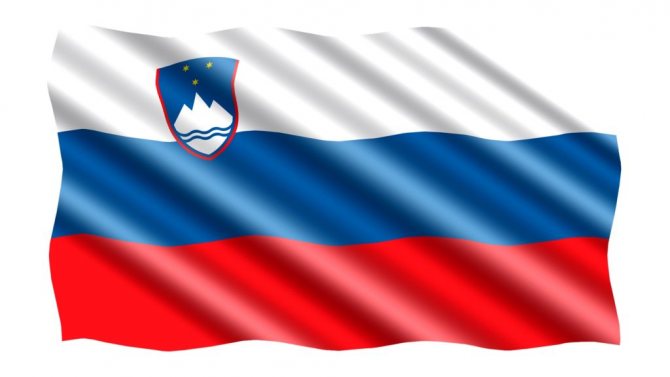
Today, the available ways to obtain a residence permit in Slovenia remain:
- Immigration for business (get a job in an established company);
- Based on training (certified educational institutions);
- For family reunification;
- Contract work at a local enterprise.
A residence permit is not provided for the purchase of real estate, since the purchase of real estate in Slovenia is only available to residents of EU countries.
Immigration for business

Recent changes have complicated the procedure for obtaining a residence permit in Slovenia for the purpose of starting your own business. Requirements for the selection of business plans for new enterprises have been tightened. More capital investment is now required, and the viability of new businesses is being assessed more closely.
This is the most popular way to move to Slovenia. After your own business has been registered, or an existing business has been purchased, an application for a business visa is submitted, followed by obtaining a residence permit for the business. The waiting period can be up to six months. Having lived in Slovenia for a year and obtained a productive enterprise (providing income and providing work for local residents), the holder of a residence permit for business has the right to request a residence permit for family reunification.
Initially, at the preparation stage, a package of documents necessary for registering a limited liability company is drawn up. Here the requirements for individuals and legal entities differ.

Individuals must obtain a tax number in Slovenia by providing:
- A copy of the first information page of the passport for foreign travel of the company founder;
- Certificate from the police confirming no criminal record in Slovenia;
- Information about the company, namely its registration address and name.
Legal entities must provide a similar list to obtain a TIN, adding to it also an extract from the registration register or from a court decision on registration, in the original, with a translation into the state language. The translation must be performed by an official translator. They also require a letter of permission from the owner of the premises in which the enterprise is located.
The minimum authorized capital is set at 7.5 thousand euros, which are deposited into the account immediately after registration of the enterprise. Six months after the start of work, the responsible authorities will request information on the economic feasibility of the project. The minimum profitability threshold must be at least 2 thousand euros.
It is possible to reduce the waiting period for a business residence permit by purchasing an existing enterprise and re-registering it in your name. The company must legally generate the above monthly income, and be registered for at least 12 months in the state register at the time of acquisition.
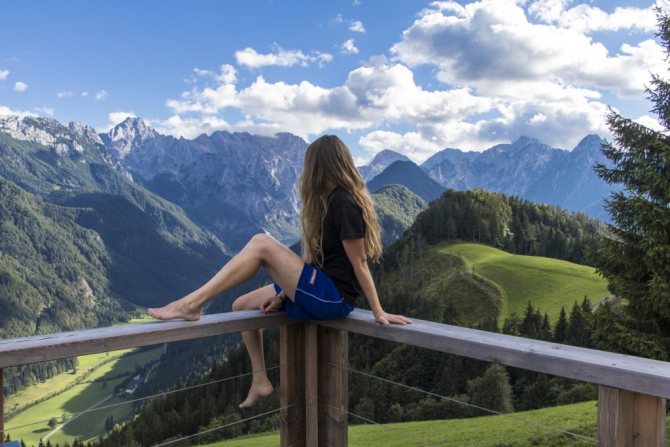
First of all, after purchasing or opening a new enterprise, after a maximum of 6 months, the entrepreneur is obliged to provide:
- Certificate confirming no criminal record
Requested at the place of residence, and must be translated into Slovenian by an official translator. Authenticity is certified by an apostille.
The validity period of such certificates is only ninety days.
- Insurance policy with coverage of at least 30,000 euros
Also purchased in advance. It can be issued by almost any insurance company upon individual request.
- Confirmation of financial security
To prove your financial solvency, you must provide an income of at least one minimum wage in Slovenia for each applicant.
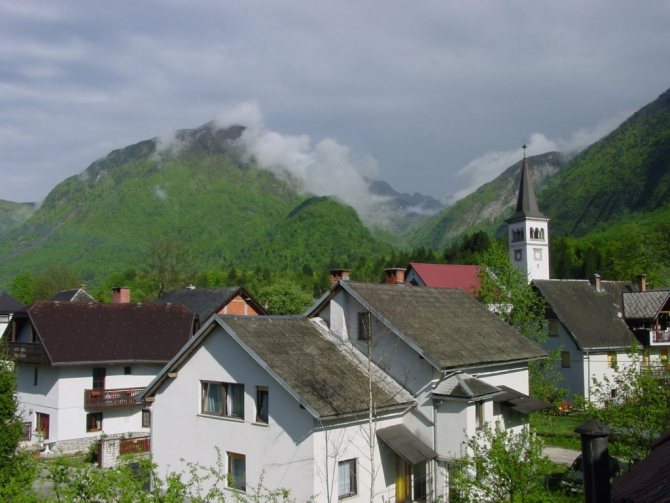
- Copy of marriage certificate
The copy is notarized and dated, as copies made earlier than six months before submitting documents will not be accepted. Translated by an official translator and then certified with an apostille.
- Copies of birth certificate for minors.
Translated by an official translator and certified with an apostille. Valid for 6 months.
From this list, marriage documents and birth certificates are required in case the applicant plans to later legalize as a member of his family under the reunification program.
Residence permit for family reunification
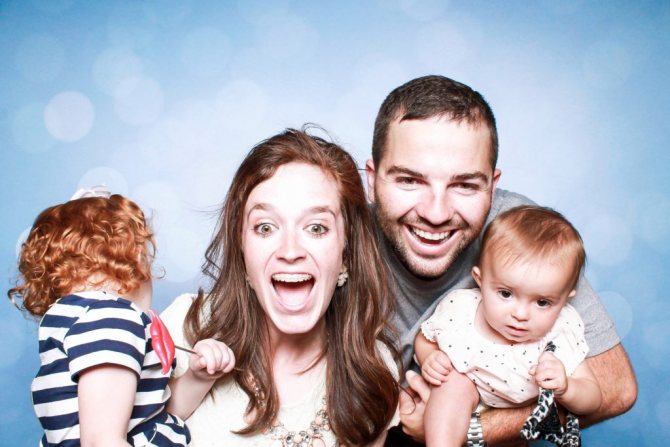
This basis requires the presence of family ties with a resident or citizen of Slovenia.
The main form of obtaining this residence permit will be marriage. The legislation of Slovenia strictly prohibits the use of marriage as a means of obtaining a residence permit in the country. If such a marriage is revealed to be fictitious, the person with a residence permit will be deported, and the Slovenian citizen will be subject to a large fine. For legalization you will need a marriage certificate. It can also be received in the Russian Federation, but must be translated and have an apostille.
Also, under the family reunification program, the wives and children of residents who have received a residence permit in the country for business come. Until 2015, it was possible to request such a residence permit for a family immediately upon receipt. Today, you can move your family only after a year of living in the country. These changes are due to several factors. Firstly, according to official authorities, a person who has started a business abroad needs at least one year to see how his personal emigration will go. On how much the new life will meet his expectations. Secondly, the majority of those who come for family reunification often request financial support from the state immediately upon arrival. Therefore, the number of applicants has to be controlled.
Residence permit based on training

Getting a higher education at a European higher education institution is considered prestigious and expensive. But in Slovenia you can get higher education completely free of charge. This does not mean that it will be very easy for international students either. Of course, some places are initially reserved for local residents, but there is still the possibility of free training for foreigners. Only bachelor's and master's degrees are paid. Postgraduate studies are also unpaid.
After studying for the required time in Slovenia, the student has the opportunity to request permanent residence, subsequently inviting his relatives to the country. In addition, the employment market in Slovenia is quite saturated. Almost all university graduates find work.

When deciding on the advisability of receiving education in Slovenia, it is important to note a number of nuances:
- If children are very young, they should first be enrolled in kindergarten, where in Slovenia they are enrolled from 11 months. Gardens are both public and private. The choice depends only on the capabilities of the parents. In theory, gardening training is not necessary. But all children, including children of emigrants, have the right to it. You can submit documents to the kindergarten any day of the year.
- School education belongs to compulsory institutions in Slovenia. In addition, there is a program for providing economic assistance for everyone if parents have declared low income. They start first grade at the age of six and study for nine years. Documents must be submitted in February of one year to register for the next year.
- The last stage of secondary education is obtaining general or vocational secondary education. Children study for four years, after which they take unified final exams, based on the results of which they can apply for admission to higher education institutions.
Contract job
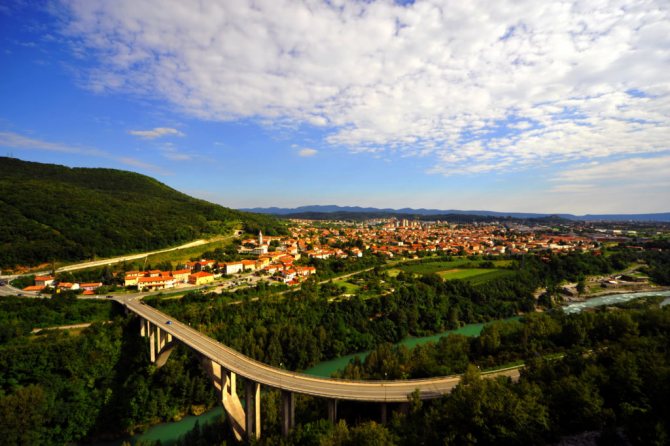
EU countries generally invite only very highly qualified personnel to work from the Russian Federation. This residence permit is extremely rarely used for moving to Slovenia, especially when it comes to a family move. The primary factors that positively influence the issuance of a visa to a candidate will be the level of his professional training, as well as knowledge of the official language of Slovenia. You can confirm your qualifications by providing translated copies of diplomas, work records, etc. The language is quite easy to learn, but you need to devote at least one year to this lesson. In Slovenia, unskilled workers and general laborers are completely unpromising. Labor remuneration does not correspond to expenses.
The validity period of a working residence permit is one year. Then it can be extended for another year, and then for three. In total, it turns out that you can stay in the country for five years with a working residence permit. After this, you are allowed to apply for permanent residence.
Obtaining a residence permit
Legalization in the country has its own nuances. The initial residence permit in Slovenia is issued for 1 year with the possibility of extension, but not longer than 1 year. The next extension can be issued for 3 years. After 5 years of residence, you can request permanent resident status. Permanent residence does not have a validity period, but there are many advantages:
- the opportunity to live in the country with the same rights as Slovenes, with the exception of the right to participate in elections;
- After 3 years you can apply for citizenship.
The prospect of becoming a citizen awaits the most purposeful and patient, but first you need to obtain a residence permit:
- Make an appointment with the immigration service on the website (all materials are there in the appropriate sections).
- Register an electronic application.
- Prepare documents according to the required list.
- Visit the migration service on the appointed day.
- Submit biometric data.
- Successfully pass the interview.
- Get a solution.
- Upon approval of the application, receive a residence permit card.
For legalization you will need a number of documents, the list of which depends on the basis of immigration. Standard kit includes:
- statement;
- international passport;
- health insurance;
- a certificate from the bank about the level of financial solvency;
- certificate of no criminal record in Russia;
- confirmation of the basis for entry;
- confirmation of the availability of a place of residence (rented).
To confirm the basis for entry, specialists in sought-after professions provide an employment contract and a diploma, businessmen - company documents, students - a certificate from the university on enrollment.
All papers are translated into Slovenian and certified by a notary.
Migration service employees are supposed to review an immigrant’s case within 1 month, but they say that in practice now they have to wait 3–4 months. If the application for a plastic residence permit card is approved, it may take another two weeks. The state fee for obtaining a residence permit is 120 euros.
Ways to immigrate to Slovenia
The main condition for obtaining a residence permit is that the applicant for this status meets one of the categories of persons to whom the card can be issued. Thus, residence permits in Slovenia are divided into several types: student, for professional activities, on the basis of family reunification, on the basis of marriage registration, for refugees and for investors.
General scheme for obtaining a residence permit
So, if the applicant for status corresponds to one of the above categories, he has the right to provide documents for its registration. The established package of documents is submitted to the diplomatic mission of the state (for example, to the Slovenian Embassy in Moscow). There is another option: submitting an application directly in Slovenia, but this is only possible if the applicant is legally in the country, has undergone the fingerprint procedure and notified the local administration of his stay. Documents for obtaining a permit must be submitted before entering the country.
The package of documents for obtaining the status includes an application, the applicant’s international passport, medical insurance, confirmation of financial solvency, a photo, as well as a certificate of no criminal record (certified by an apostille). If the original document exists in Russian, it must be translated into Slovenian. The translation is certified by a notary. A bank certificate can be provided as proof of financial solvency.
If the decision is positive, the applicant is issued a card. As a rule, the validity period of the card does not depend on the basis for issue: it is issued for 12 months, after which it must be renewed. It should be noted that a fee is charged for obtaining a residence permit.
Reviews from Russians who have moved
Unlike residents of Germany and England, the population of Slovenia is more friendly towards visitors from the Russian Federation. There is no such openness as in Serbia, but most Slovenians are friendly, and some remember and speak Russian. It cannot be said that they strive to be friends, but if necessary they will help. Reviews of former compatriots who moved to Slovenia published on forums will help to complete the picture of expectations from moving to the country and to know what issues you will have to face.
Alice
“I met my future Slovenian husband on the Internet. I came to see him in Ljubljana and stayed. I really liked the climate. In the summer we relax at the seaside, in the winter we go skiing. The language was easy for me, my husband helped. Friends from Russia attend annual free courses and are very successful. I was somewhat afraid that our marriage would take a long time to be checked for fictitiousness, but for 3 years we had no real checks. I received a residence permit very quickly, all I have to do is wait for permanent residence, and then I will think about citizenship. All the time I’ve been living here, I’ve felt at home.”
Leodin
“My opinion is that only those Russians who have opened a business or work remotely live well in this small country. They made a good choice. Finding a job here without patronage is difficult or almost impossible. Unemployment is high, so if necessary, employers will hire their own people for a position with a low salary first of all, rather than foreigners. Pensions here are not bad, but to earn them, you need to work in a local company for at least 10 years.”
Katerina
“The country captivated me with its security. I walk the streets freely at night if I have to return home late. There is no acute division of society into classes. As I understand it, there are no disadvantaged areas in cities either. I’m also glad that there are almost no women in hijabs here, unlike the rest of Europe.”
Anyone who wants to live like a European can move to Slovenia. The country is beautiful, small and quite comfortable. Before making a decision, it is advisable to thoroughly weigh your prospects for employment and life here.
